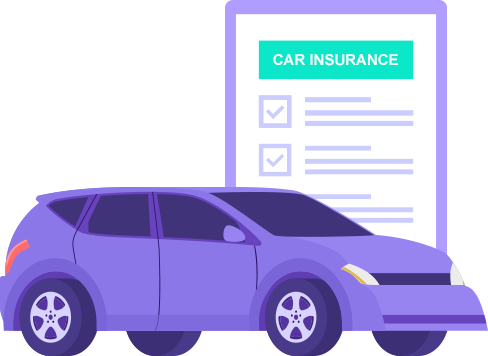Introduction
Car insurance is a necessary expense for every driver, but that doesn’t mean you should overpay. Comparing car insurance quotes can save you hundreds of dollars each year. However, with so many providers, policies, and discounts available, the process can feel overwhelming. This guide will break down everything you need to know to compare car insurance quotes effectively and secure the best rates.

Understanding Car Insurance Quotes
What Is a Car Insurance Quote?
A car insurance quote is an estimate of how much you will pay for a policy based on various factors. Insurance companies use different algorithms and risk assessments to determine your premium, which is why prices vary between providers.
Why Do Car Insurance Quotes Differ?
Insurance companies assess risk differently, considering multiple factors such as your driving history, age, vehicle type, and location. Additionally, discounts, bundling options, and state regulations play a role in determining the final quote.
How to Compare Car Insurance Quotes Effectively
- Gather Personal Information: Have details like your driver’s license, vehicle information, and driving history ready.
- Determine Your Coverage Needs: Decide on liability limits, comprehensive and collision coverage, and additional protections.
- Request Quotes from Multiple Providers: Use online comparison tools and individual company websites.
- Check for Discounts: Look for savings opportunities such as good driver discounts and multi-policy bundling.
- Compare Policy Details: Don’t just focus on price—examine coverage limits, deductibles, and exclusions.
- Review Customer Satisfaction Ratings: Read reviews and check ratings from trusted sources like J.D. Power and the Better Business Bureau.
Top 5 Factors That Impact Your Car Insurance Quote
- Age and Driving Experience: Younger drivers typically pay higher premiums.
- Driving Record: Traffic violations and accidents increase rates.
- Vehicle Type: Luxury and sports cars typically have higher insurance costs.
- Location: Urban areas often have higher rates due to increased accident risks.
- Credit Score: Many insurers consider credit history when setting rates.
Online vs. Offline Car Insurance Quotes: Pros and Cons
| Method | Pros | Cons |
| Online | Quick and convenient, allows for easy comparisons | May lack personalized advice |
| Offline (Agent) | Personalized service, potential for tailored discounts | Time-consuming, limited provider options |
Best Websites to Compare Car Insurance Quotes
- The Zebra – Provides side-by-side comparisons from top insurers.
- NerdWallet – Offers customized quote comparisons.
- Gabi – Finds better rates by analyzing your existing policy.
Tips to Get the Cheapest Car Insurance Quote

- Maintain a clean driving record.
- Opt for a higher deductible to lower premiums.
- Bundle auto insurance with home or renters insurance.
Take advantage of safe driving discounts.
The Role of Coverage Limits and Deductibles in Quote Prices
Choosing lower coverage limits may save money upfront but can leave you financially vulnerable in case of an accident. Increasing your deductible can reduce your premium, but you’ll need to pay more out-of-pocket if you file a claim.
Common pitfalls to avoid when comparing car insurance quotes.
- Ignoring Policy Exclusions: Some policies may not cover all types of damage.
- Focusing Only on Price: A cheaper policy might lack essential coverage.
- Not Updating Your Policy: Life changes like moving or buying a new car should prompt a re-evaluation of your insurance needs.
State-by-State Differences in Car Insurance Quotes
Car insurance rates vary due to state laws, population density, and accident rates. For instance, Michigan has some of the highest premiums due to its no-fault insurance system, while Maine generally offers lower rates.
How Your Credit Score Affects Car Insurance Quotes
A good credit score can lead to lower premiums, as insurers associate higher credit scores with lower risk. Improving your credit score by paying bills on time and reducing debt can help you secure better rates.
Best Car Insurance Companies for Affordable Quotes
- GEICO – Best for budget-conscious drivers.
- Progressive – Great for those with accident forgiveness options.
- State Farm provides personalized service through local agents.
- Understanding Policy Add-Ons and Their Cost Impact
- Roadside Assistance: Covers towing and minor repairs.
- Rental Car Reimbursement covers the cost of a rental while your vehicle is being repaired.
- Gap Insurance: Covers the difference between what you owe on a car loan and its depreciated value.
When to Switch Car Insurance for a Better Quote

- When your policy is up for renewal.
- After a major life change (marriage, moving, new car purchase).
- If you find a competitor offering better rates.
The Future of Car Insurance Quotes: AI and Telematics
Insurance companies are using AI and telematics to personalize pricing. Devices that monitor driving habits can lead to lower premiums for safe drivers.
Conclusion
Comparing car insurance quotes is essential for saving money and ensuring you have the right coverage. By understanding the factors that influence pricing, using online tools, and taking advantage of discounts, you can secure the best possible rate for your needs.
Frequently Asked Questions (FAQs)
1. How often should I compare car insurance quotes?
At least once a year or whenever you undergo a significant life change.
2. Does getting multiple quotes hurt my credit score?
No, insurance quotes typically result in a soft credit check, which does not impact your score.
3. Can I negotiate my car insurance quote?
While you can’t negotiate the base rate, you can ask about discounts and coverage adjustments to lower costs.
4. What’s the best way to lower my car insurance premium?
Maintaining a clean driving record, bundling policies, and increasing your deductible are effective ways to reduce costs.
5. Why do different companies give me different quotes?
Each insurer uses unique algorithms and risk assessment models to determine pricing.
6. Is it better to pay for car insurance monthly or annually?
Paying annually can save money, as many insurers offer discounts for upfront payments.